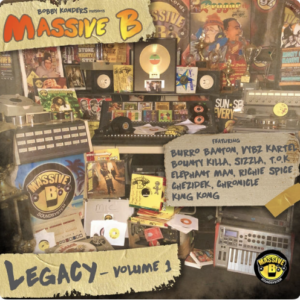Tech Talk News: Check Out Diaspora, The Social Network Where You Own Your Personal Data!!

With privacy issues being a common topic and concern of social networks a couple of programmers started working on Diaspora, a social network where the user has more personal control of their data. The site has had a couple of ups and many downs but I believe it will keep growing due to unique history . Check out the story of Diaspora after the jump.
Sitting along Yankee Stadium’s third base line during New York University’s rainy graduation two years ago, Max Salzberg couldn’t focus. The phone in his pocket wouldn’t stop buzzing. With each notification, the NYU senior wiped water off the screen to read an e-mail saying yet another person had given money to Diaspora, the not-yet-even-a-startup he and three college buddies had hatched the month before. Buzz. Another donation. Another buzz. Over the course of the ceremony, Salzberg and his co-founders raised more than $10,000. Over the course of the day, $40,000 more.
A few weeks earlier, Salzberg and three friends from the computer science club—Daniel Grippi, Raphael Sofaer, and Ilya Zhitomirskiy—had posted a rambling three-minute video on the crowdfunding site Kickstarter. They wanted to raise $10,000 to create a new kind of social network, one that lets people, not companies, own their personal data. They were young. They thought it would take the summer.
The four had sent the link to friends and got their first donation from their faculty adviser. Several well-known open Internet advocates tweeted about the campaign, and in 12 days, the Diaspora guys had their 10 grand. And the money kept coming. A New York Times reporter called them for a midnight interview; an early morning photo shoot followed. Then, on the day before the May commencement, the four undergrads found themselves atop the Times home page. “It just blew up like crazy,†Grippi says.
Their timing was perfect. Facebook had just changed its privacy policy, telling members it would track personal data to third-party websites. There was an outcry from users alarmed that it could track them beyond their personal pages. Facebook had changed its privacy policy half a dozen times, each alteration a reminder of the grand bargain users have made with the world’s most popular social network. It lets them keep tabs on long-lost classmates, share vacation photos, and feel connected, all at no cost. In exchange, their profiles aren’t really theirs—every bit is owned by the company and used for its profit. To connect on Facebook, users have no choice but to consent to its policies, and on the eve of Facebook’s nearly $100 billion initial public offering, the commercial value of that choice is all the more clear: In 2011 the company earned $5.11 per user, primarily by serving up targeted ads. Nine hundred million people have implicitly decided that the trade-off is worth it.
Diaspora aimed to convince consumers otherwise. The founders envisioned a site that would function like a social network but would give users ownership of their data, taking exploitation out of the equation. You could store what you post on any server you want and then share it, delete it, or use it however you choose.
The idea had undeniable appeal, but the four college students had assigned themselves a ferocious task. They would eventually overcome the technical challenges to build a functional site. Today, Diaspora is an active social network with a small, dedicated following, not yet open to the public. But now the founders must persuade people—beyond privacy purists—to use their product. After all, a social network doesn’t work if no one joins.
On that May afternoon, the Diaspora founders couldn’t imagine their idea would lead to a turbulent two years that would include a move to Silicon Valley, fame, scrutiny, and tragedy. Before the founders had started coding, 6,479 people gave Diaspora $200,641, what Grippi calls “f–k Facebook money.†The attention set improbably high expectations that a few 19- to 22-year-olds, using open-source software, might take on the world’s most popular social network.
In the spring before that rainy graduation, Eben Moglen, the founder of the Software Freedom Law Center in New York, visited NYU to issue a call to arms. “He said all of us nerds, we use the big guys like Facebook and Google,†Grippi recalls. “We don’t have a way to connect to each other without sacrificing our privacy.†Moglen challenged them to code a solution.
The four young techies were an earnest group. If Diaspora were formed in 1960s Liverpool, Salzberg would be Paul McCartney. Then 22, Salzberg was an eager spokesman, chatty and full of ideas. Grippi, then 21, would be the group’s John Lennon, the artistic cool guy who loved design. Sofaer, a 19-year-old sophomore, would be Ringo Starr, the kid brother who was easygoing but cautious. That leaves George Harrison as Zhitomirskiy, a junior with an idealistic, if at times impractical, spirit. “Being a part of creating stuff for the universe is awesome,†Zhitomirskiy told New York magazine in 2010.
Inspired by Moglen’s visit, the four holed up in their club’s tiny office and built a prototype of Diaspora, posted the Kickstarter proposal, and watched the money pour in. What was once a summer project suddenly had a broader mandate. They’d now promised thousands of people—many of whom weren’t techies like themselves—that they’d build something that would challenge Facebook. “Diaspora is trying to destroy the idea that one network can be totally dominant,†Sofaer says.
He and Zhitomirskiy decided to take time off from school and join Grippi and Salzberg in San Francisco. For Zhitomirskiy, it was a chance to “slay a dragon†and pursue an ideal that he thought was fundamentally on the right side of history. “He really believed in his project,†his mother, Inna Zhitomirskaya, wrote in an e-mail. “It was his baby.â€
The group scored free office space—and mentors—from Pivotal Labs, a San Francisco software developer where Sofaer’s brother worked and whose clients include Twitter and Groupon. There they pounded out the first batch of code and learned the challenges of building what’s known as a federated network. Most websites, including Facebook, have centralized systems, where all user data sit on the company’s servers. Diaspora would be more like e-mail. You have the option to host your own server, or, if you’re like most people and don’t have the time or expertise for that, you could sign up for someone else’s. Servers could vie for users by offering, say, special themes for French speakers, plug-ins for sports fans, or greater privacy controls. “If we built this in a centralized structure, our code base would be like this,†Grippi says, putting his palms an inch apart from each other. “But because we’re federated, it’s like this,†he continues, expanding his hands as far apart as they can go.
In September 2010, after three months of programming, the team released its first collection of code, a “pre-alpha†preview. The guts were unique, but the site looked a lot like Facebook. You could post updates and photos and comment on other people’s status messages. Unlike Facebook, you could group contacts by “Aspects,†which let you choose who could see what. The founders saw the release as a starting point for developers to help work out the kinks and create features, but bloggers and tech sites called it buggy and riddled with security holes. “The bottom line is currently there is nothing that you cannot do to someone’s Diaspora account, absolutely nothing,†software developer Patrick McKenzie told the Register, a British IT site.
The team plowed ahead, adding security and fixing bugs, and by Thanksgiving opened up in “private alpha,†an early version released to a limited group. They started their own server, joindiaspora.com, and over the following months added features such as hashtags and a browser extension called cubbi.es that made it easy to share photos online. They got a bank account and filed paperwork to be incorporated.
In about a year, they had successfully built a social network that functioned more or less like Facebook but let people own their data. Without any real marketing, more than 600,000 people used the site, but it was a narrow slice of the population, attracting lots of distrustful techies and Europeans. “There was a period that we didn’t 100 percent know what we were doing other than making it incrementally better,†Salzberg says. They had found a way to let users physically own their data. What they didn’t have was another reason to get people to join.
Big players, however, were watching them closely. In June 2011, Google released Google Plus, its big, this-time-is-for-real push into social networking. Tech bloggers quickly noted how much the new site looked like Diaspora—Google was “drinking Diaspora’s milkshake,†said the blog ReadWriteWeb—and, in particular, how Google’s “Circles†resembled Diaspora’s “Aspects.†That Google “took their open ideas†made Zhitomirskiy very proud, his mother says. “They clearly cribbed a bunch of stuff from us,†Salzberg says. Google says its designs predate Diaspora.
The same day, Google also released Takeout, another personal data project that had been in the works for years. Takeout is the brainchild of Google engineer Brian Fitzpatrick. In 2006 he hired a half-dozen programmers to work on a pet project. In a twist, the team made it easy for people to take their data and leave Google. “We want people to think about it just in the same way as they think about their personal property,†Fitzpatrick says.
The Google team adopted a provocative persona, calling themselves the Data Liberation Front. Their logo is a red fist that channels Karl Marx more than Google’s bubbly brand, and the team went product-by-product to build tools to export and delete personal data. Over time, the list of “liberated†products grew, eventually including major platforms such as Gmail, Web searching, and Google Plus. As part of last June’s launch of the one-step download, Fitzpatrick gave top Google executives their own red, three-foot bolt cutters stamped with “THE LIBERATOR†on one handle. The other handle read, “Users shouldn’t need these to get at their data.â€
Fitzpatrick says that by giving users an out in the short term, the Data Liberation Front forces Google’s engineers to build better products to keep users over the long haul. “It’s really in our best business interest,†he explains. “If you lock people into your product it can be dying on the vine, and you just don’t know it until it’s too late.â€
Owning your personal data is just one part of the puzzle. Once you have it, what are you supposed to do with it? Is it destined to be a digital shoebox, stashed away and only brought out for nostalgic review? “Let’s say some new fancy social network comes out, and you want to give it a try. You should be able to do that, right?â€
Google Plus was a glimpse of what Diaspora could be, and yet the results weren’t satisfying. Its 100 million users spend an average of just three minutes a month on the site, according to comScore. Despite all of Google’s resources and many superior features, Google Plus still hasn’t really lured users away from Facebook, showing just how strong inertia can be or how good Facebook is.
In August 2011, Sofaer opted to return to NYU for his junior year. From time to time, Zhitomirskiy’s parents asked him to consider going back to school but didn’t push. “After all, anyone can go and spend their parents’ money on education, but not many can go and make something cool,†his mother says. The three remaining founders kept working. A few weeks before a November 2011 beta launch that would have opened the site to everyone, they called off the release. Diaspora still didn’t feel like they had cracked the code.
On Saturday, Nov. 12, 2011, at 8:13 p.m., Salzberg got an unusual text message. A friend was saying that Zhitomirskiy’s mother couldn’t reach her son. Salzberg texted another friend for the phone number of Zhitomirskiy’s roommate, and that friend immediately called back. Zhitomirskiy was dead, she said, and it looked like a suicide. Though Salzberg had seen Zhitomirskiy struggle with emotional lows in the past, the news “didn’t register,†Salzberg now recalls, twirling the beard he began growing that day and has yet to shave. People immediately showed up at Salzberg’s Mission neighborhood house, which became a central mourning spot. They downed bottles of Maker’s Mark and cooked a massive pot of macaroni and cheese. “One moment you were crying, and the next moment you were laughing your ass off,†Salzberg says. They called the ritual “ShivaFest†after the Jewish mourning tradition.
News of Zhitomirskiy’s death quickly spread on tech blogs. Major news organizations followed; the New York Times ran an obituary. The founders have not spoken about it publicly until now.
Media reports speculated that his death was a result of the undue pressures on the founders. For people who knew Zhitomirskiy, that wasn’t quite right. “Yes, I agree that being a startup founder is stressful,†says Salzberg. “But it wasn’t the stress of work that killed Ilya. He had his own issues. He was sick.†(The San Francisco Office of the Medical Examiner formally ruled the death a suicide last month.) Zhitomirskiy’s mother won’t comment on reports that her son had a history of mental illness, saying only, “I strongly believe that if Ilya did not start this project and stayed in school, he would be well and alive today.â€
After mourning Zhitomirskiy at a San Francisco funeral (simulcast on the Web) and a service in Philadelphia, Salzberg and Grippi put the company on hold. Salzberg spent his days playing video games. Grippi hunkered down with a friend and pounded out code that made Diaspora run three times faster.
At the end of last year, Grippi and Salzberg knew they had two choices—quit or rebuild. Over walks and beers in December, they discussed what was unique to Diaspora. They’d built a change-the-world kind of place where people can feel free to express themselves, but the product could be better, more focused. They could make it more mainstream by paradoxically making it less like Facebook. And working on it could be fun again.
When Grippi and Salzberg returned to work in January, they knew they couldn’t rebuild by themselves. They brought on Dennis Collinson as the full-time “chief magical officer†(head of engineering) and designer Rosanna Yau to help with the site’s look and user experience. They consider the two full “late-stage co-founders.â€
They kept talking about where to go, how to be more product-focused, and how Diaspora’s decentralized structure makes it different. Without knowing it, Diaspora was starting to play around with the ideas that had been percolating at other startups. When you own your own data, new possibilities open up: You can learn from it and profit from it. Startups are trying to see if those added benefits can shake users out of their complacency.
One model getting attention is so-called personal data lockers, which let people aggregate their data and selectively share them with businesses they trust. A new startup, Personal, has $7.6 million from funders including Steve Case’s Revolution venture fund and another locker, Singly, recently closed a $7 million round. Swift (Society for Worldwide Interbank Financial Telecommunication), the global cooperative that processes wire transfers between banks, plans to start testing its own locker.
Even the very marketers who benefit from the scale of Facebook see a future in a more owner-centered approach. Fatemeh Khatibloo, an analyst for Forrester Research who advises advertisers, says that the data economy’s “disregard for individuals†is a ticking time bomb, that increasingly large security breeches and that icky feeling of being tracked will slowly shift consumers to demand more control. And that could mean a larger audience for Diaspora.
On a perfect April day in San Francisco, the team continues its quest to marry the old Diaspora with its vision. It has set up in an open row of desks at Pivotal Labs’ loft-like offices. Salzberg hunches over a laptop, fighting with a legacy batch of code. “This is amazing open-source software that’s going to change the world, but we still have to deal with this s–t,†he says and puts his head back down. One desk over, Grippi plots what the new Diaspora will look like. Having learned that physical ownership alone doesn’t draw crowds, they now hope that adding a layer of artistic ownership will do the trick.
On Facebook, users are funneled into the same design.Whether they’re mad or elated, their updates on Facebook all appear identical: all in Lucida font, all the same size, everything in blue and white. Surely online personas could be a better visual depiction of personalities. Diaspora’s hoping that with the right tools, people could be proud of the things they make online and could channel the joy of DIY creativity. As the success of Instagram shows, giving users creative control—such as choosing a filter for a snapshot—can be hugely popular. Diaspora wants to extend that idea to how users post photos, text, and video. “We are giving you both emotional and technical investment in what you are creating,†Salzberg says.
On this day, Grippi and Collinson’s focus is on developing a set of templates that lets users control how their status updates look. If the text is short, users can have the words displayed in a hip, minimalist font splashed above the photo. If there’s a lot of text, it can be styled more like a newspaper, with a headline and serif fonts. The updates feed into a personal home page that’s a four-column grid with images and updates in different-size rectangles. Click on an update, and it gets bigger. Click on the bar above an update, and it expands to cover your whole screen.
In this prototype, users control the feel of every post. Salzberg has designed his home page with lots of text, while Grippi’s is a collage of hip, muted photos. And users can choose whether to share it only on Diaspora, or on Facebook, Twitter, or other networks, too. If you change your mind, you can go back and change the design or delete it entirely: You own the bytes and the expression. “Having something bad happen lets you focus on what’s very important,†says Sarah Mei, a Pivotal Labs developer who’s become a mentor for Diaspora. “They’re building it more like a product, and most open-source projects don’t do that.â€
If anything can help Diaspora fulfill its ambitions to make a popular product out of its alluring ideals, it’s the startup accelerator Y-Combinator. In June the team will move to Mountain View for three months to join the program. Y-Combinator helped launch the cloud storage startup Dropbox, the vacation rental site Airbnb, and the presentation-sharing hub Scribd and has a reputation for guiding startups to a clear product and eventually linking founders with investors. The team expects Diaspora to evolve during the summer program and will later open it to the public. People can sign up for updates on the launch date at joindiaspora.com. “To think about [Diaspora] as an anti-Facebook limits what we want to do,†Salzberg says. “We want to be the positive data story.â€
As the group heads out for lunch, an intern, Kayla Holderbein, takes a photo on her iPhone of Collinson showing off a deep V-neck he’s cut out of a Diaspora T-shirt. She uploads the photo and the text, “It’s #V-neck Wednesday, y’all,†and picks one of Diaspora’s templates. “Dennis, I made something for you,†she says, showing off the mashup. At hearing that magic word, “made,†Salzberg jumps out of his chair. “Cool! Listen to what you just said! That’s the idea.â€
THE BLOG
HOT 97
LINKS
MUSIC
Bobby Konders Presents: Massive B Legacy, Vol. 1
Release Date: November 19th, 2018 Bobby Konders Presents: Massive B Legacy – Volume 1 is now available and includes ten features on ten tracks. Burro Banton, Vybez Kartel, Bounty Killa, Sizzla, T.O.K., Elephantman, Richie Spice, Chezidek, Chronicle, and King Kong. You can listen on Apple Music, Spotify, and Tidal.
#MusicStillMatters New Music: A Boogie – Nice For What
A boogie gave fans a snippet of this one via his instagram. Finally after all the request to drop the full version from fans – here it is. Check A Boogie’s version of “Nice For What.” Listen below.
#MusicStillMatters New Music: Dave East – Imagine
Dave East is set to release the 2nd installment of his “Karma” series, next week on July 27. Check out this new one off the tape called “Imagine.” Listen below.
#MusicStillMatters New Music: 070 Shake – Accusations
The G.O.O.D. Music rookie 070 Shake releases a new one called “Accusations.” Listen below.
(Video) Tony James – Sweat Slow
Toronto’s very own Tony James has released his major label debut single and visual for “Sweat Slow.” Tony says this one “Is about the one that got away, so we wanted to show the beautiful, happy women representing the ex-girlfriends of the men who took them for granted.” Look out for more from Tony this…
#MusicStillMatters New Music: Childish Gambino – Summertime Magic / Feels Like Summer
Childish Gambino aka Donald Glover follows up his video/song “This Is America” with not only one, but two records for the summer. The “Atlanta” creator tweeted “summer pack,” with a link to his songs, “Summertime Magic” and “Feels Like Summer.”
#MusicStillMatters Stream: Meek Mill – Legends Of The Summer
Meek Mill decided to treat his fans to new music when he dropped a new EP called “Legends of the Summer.” the 4-track tape features Swizz Beatz, Jeremih and PNB Rock. Stream below.
#MusicStillMatters Stream: Future – Beast Mode 2
Future links up with Zaytoven for the follow up to 2015’s “Beast Mode” titled “Beast Mode 2” which includes 9 tracks with a feature from Young Scooter. Listen below.
#MusicStillMatters New Music: T-Pain – Boo’d Up (Remix)
First it was Nicki Minaj and Quavo who put their touch on the track to mixed reviews. Then Fabolous laid his verse on the hit single. Now, T-Pain decided to give his take on the track. Listen below.
TECH TALK
We Know What YG’s Next Purchase Will Be: This ALL RED Special Edition iPhone!
An all red iPhone is on the way – I’m sure much to the delight of the Bloods. LOL! A special edition red version of the iPhone 7 and 7 Plus have been introduced, in celebration of the 10-year anniversary of Apple’s partnership with HIV/AIDS organization, (Red).
(Video) Apple Unveils New Spaceship Campus Called “Apple Park”
One of Steve Jobs projects he left behind before his untimely death from pancreatic cancer, was the Apple spaceship campus. Take a look.
(Video) Lil Wayne Featured In EA’s ‘Need For Speed: No Limits’ Game
While we still have no Carter 5 in sight, we can at least get SOMETHING from Lil Wayne in the form of EA’s new mobile game, Need For Speed: No Limits. Players can drive as Weezy in the game, and both his voice and likeness are there for fans to enjoy. Tune is also working…
Sprint Purchases 33% Stake In Jay-Z’s Tidal
Power moves on power moves on top of power moves. Hov just struck a big deal for Tidal and the artists who have stake in the company as well, through Sprint.
(Video) Travis Scott Previews New Heat On Snapchat
Looks like Travis Scott is cooking something up…Astroworld this year?
Azealia Banks Has Been Banned From Facebook
AzealiaBanksVEVO Well, that took longer than expected.
(Video + Photo) Ariana Grande Got Her Own Character In “Final Fantasy: Brave Exvius” Game
Soon you’ll be able to play as Ariana in Final Fantasy and she broke the news to her fans yesterday.
SoundCloud Makes A Major Update That MANY People Will Be Happy About!
When SoundCloud first came out, it quickly became a hub for DJs, uploading their mixes and gaining a decent following because of it. However, as labels became more hip to the new site, they began issuing copyright infringements left to right, and DJs began leaving the streaming website in droves – especially because their accounts…
MARISA EXPLAINS IT ALL
Marisa Mendez x Jamal x Tunisia – Marisa Explains It All [Episode 16: “Holiday Hangover”]
We’ve made it to episode 16 of my podcast, Marisa Explains It All, and I finally decided to share it with you guys here. LOL! On this episode, we pre-gamed before the Ebro In The Morning holiday party…and uh, yeah. Drunk talk and feelings were at an all time high. Our music picks are as…
Behind The Lyrics: Lil Wayne Admits To Botched Suicide Attempt As A Child On “London Roads”
Lil Wayne has long recounted a story of “accidentally” shooting himself when he was 12, playing with a 9 mm handgun. Thankfully, an off-duty cop was around to help young Tune, and he survived to become the rap star he is today. Apparently, that wasn’t the whole story, though! On “London Roads”, a song from…
(Video) Machine Gun Kelly Finally Opens Up About Amber Rose
Machine Gun Kelly is one of my favorite artists and has been a good friend of mine for years now, so it was double the blessing to make my Hot 97 interview debut with him on Ebro In The Morning today! The Bad Boy rapper stopped by to discuss his new single and its powerful…
Behind The Lyrics: Wiz Khalifa Comes For Amber’s Neck On “For Everybody”
Last night, Juicy J dropped his Wiz Khalifa-assisted single “For Everybody,” and boy did Wiz have some choice words for his ex Amber Rose on the track! And to drive the point home, they included a photo of themselves at his wedding to Amber as the song’s artwork.
(Video) Honey Cocaine Plays A Hilarious Game Of Taboo
Toronto-bred raptress Honey Cocaine made her rounds at Hot 97 a few weeks back, promoting her latest mixtape Like A Drug, and its 2 singles, “Gwola” featuring Kid Ink and Maino, and “None Of My Business” with Kirko Bangz and Constantine. Following her dope interview with Jen From BK for Jen’s “Ladies First” segment, I…
Interview: Machine Gun Kelly On Debut Film: “I hope that it kind of strikes a social issue…” [PLUS Details On Sophomore Album!]
This Friday, Colson ‘MGK‘ Baker will make his big-screen debut, starring as Kid Culprit in the romantic drama, Beyond The Lights. Since his 2012 Bad Boy/Interscope debut Lace Up and his breakout single “Wild Boy,” Kells has toured the world and shot not only Beyond The Lights, but two more as-of-yet unreleased films as well.…
Elijah Blake Gives 7 Tips How NOT To Act Around A Celeb, Plus Talks New EP, His First Big Check & More!
Singer/songwriter Elijah Blake has worked with a majority of the biggest names in the music business from Rihanna, Justin Bieber, Usher, Mary J and more, either having written for them or being featured on their songs. Now with his recently released Drift EP (available on iTunes here,) the talented Def Jam signee sat down to…
IFWT Exclusive: Maino Gives Us The REAL Story Of What Happened With The Porn Star!
Maino is currently being sought out by the NYPD for questioning, after an adult film star accused him of assaulting her inside of his truck after they partied at Griffin on Monday night with Drake, Ashanti, JR Smith and more. According to the police report filed by the porn star, Mellanie Monroe, “he started punching…
Mila J Reveals The Real Deal Between Her & A Rumored Beau, Plus Talks New EP, Diet/Workout, Her Mains & More!
Gorgeous singer/songwriter/dancer Mila J finally released her debut EP M.I.L.A. (Made In L.A.) yesterday, after years of trying out girl groups, various solo ventures, random day jobs and the like. She’s finally found her niche now though, and has seen success with her latest singles, “Smoke, Drink, Break-Up” and the Ty Dolla $ign-assisted, “My Main.”…


























